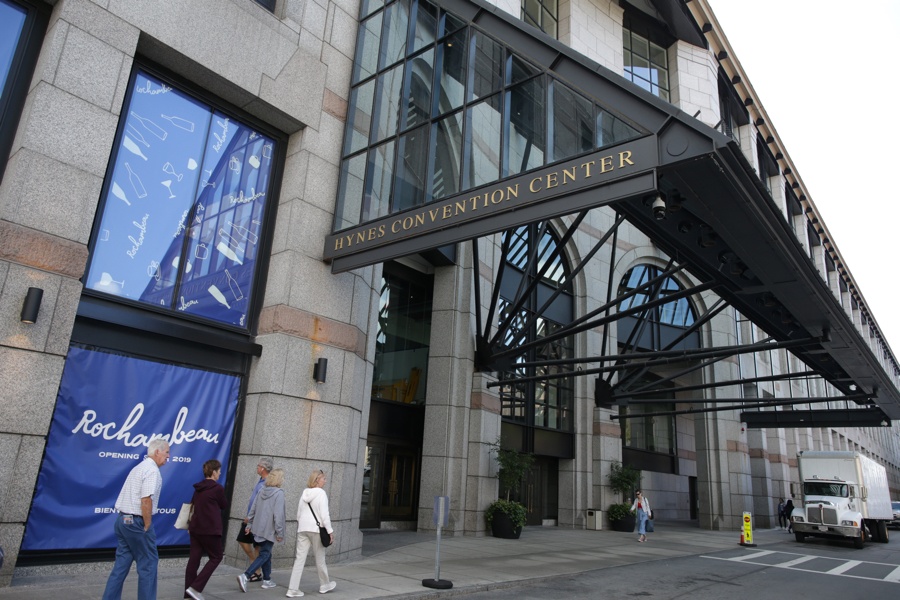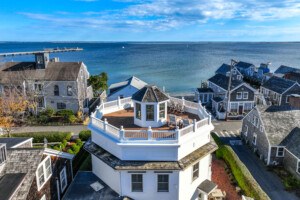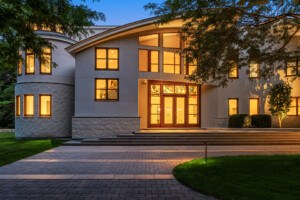What Should Be Next for the Hynes Convention Center?
With Governor Baker hinting at a potential sale of the center in the future, we asked a few people what it should become.

Photo by Jonathan Wiggs/Globe Staff/Getty Images
The last few years of pandemic-induced restrictions have posed difficulties for large event spaces that host tightly packed gatherings. As events like conferences or panels remain infrequent or largely virtual, the future of urban convention centers has been up in the air. For the Hynes Convention Center, overseen by the Massachusetts Convention Center Authority, the answer may be new ownership: Gov. Charlie Baker recently hinted at potentially putting the space up for sale, as part of an upcoming economic development bill, as reported by the Boston Globe.
Baker first set his sights on selling the Hynes in 2019 to help fund an expansion of the newer Boston Convention & Exhibition Center. But he touched upon the topic again at an event in Cambridge on March 23. At the announcement of a new workforce program, Baker said the convention business was “very thin to begin with” and “obviously a lot thinner now” and that the nature of how and where people work is changing. All this prompts a re-examination of the Hynes and how we structure our downtown. “Right now, we have a big space, in the middle of an important neighborhood, that’s basically dark almost all the time,” he said at the time. “And with the concern I think a lot of us have about downtowns, this has got to be an important part of the conversation.”
Baker offered assurances no one would lose their job should the Hynes be sold, pointing to the opportunities available at the Seaport’s Boston Convention and Exhibition Center. But community leaders are clear: The sale should be approached thoughtfully, if it should happen at all, given how much is at stake with the money and jobs the center brings into Back Bay and the broader city.
“This should not just be seen as source of money for the state…The land use itself has enormous public value,” says Kenzie Bok, city councilor for District 8, which includes Back Bay, pointing out how crucial the Hynes is to surrounding hotels and restaurants. “It’s like shutting off the river that turns the mills at the factory. It’s a substantial job site.” However, given the shifting needs of the working world, many admit the space—with four exhibition halls spread out over 175,000 square feet in one of Boston’s most vibrant neighborhoods—could be reimagined to include uses that would still benefit the community. What could this coveted spot hold? Community leaders have a few ideas.
Reimagined meeting space
Even though convention business slowed over the last two years, local figures admit the space to gather at the Hynes is crucial to the area from an economic standpoint. Rep. Jay Livingstone (D-8th District), who lives in Back Bay himself, says he’s talked to a number of local restaurant and hotel employees who think the business Hynes gatherings bring in is irreplaceable. “The space is designed for [conventions] and so continuing to have a significant amount of meeting space on that site is going to be an essential part of any development,” he says.
The Hynes also holds a certain allure to visitors because of how close it is to things that make Boston Boston. From a day at the convention, you can walk to Fenway Park or Beacon Hill—or simply head a block over and enjoy the sights of Newbury Street. In other words, plenty of attractions that appeal to people visiting from out-of-town. Sure, there’s still the Boston Convention and Exhibit Center, the younger, flashier sibling convention space to the Hynes, but for all that it offers abundant dining and nightlife proximity, it’s still stuck in the notoriously transit-deficient Seaport, and a much more distant walk to those types of attractions.
It’s the Hynes’ connection to the rest of the city that makes it so valuable, says Elliott Laffer, chair of the Neighborhood Association of the Back Bay. If a sale must happen, Laffer says he’d like to see meeting space retained. “[The current leadership] is focused down at waterfront,” he says. “The Hynes…is probably the best location for an urban convention center in the U.S. It’s walkable to all kinds of wonderful things…We’d prefer it not be sold as it’s unclear what the meeting business is going to look like…[but] even if there’s a new building and more to the building than that, the meeting space is critical.”
Childcare center/school/arts center
While representatives emphasize the importance of having meeting space in the Hynes, many see the benefit of molding it into a mixed-use space that could address other needs. It could be used for early childhood facilities or a public school (Back Bay has a shortage of public schools), while preserving meeting space, Bok says. Equally crucial is the need to keep jobs in the area, which could be done through using the Hynes as a public arts space.
“Our hope is that the Hynes will continue to serve as an engine for economic and cultural vitality in the heart of the Back Bay,” says Martha J. Sheridan, President and CEO, Greater Boston Convention & Visitors Bureau. “The building has been an anchor for the neighborhood for decades, an economic driver that supports all of the commercial, cultural, and culinary businesses that operate in the Back Bay and beyond.”
Sheridan acknowledged the ongoing need for a large meeting space in the area, but hopes to see some aspects of the Hynes repurposed in a way that offers a range of uses, from artists to retailers to entertainers. As she pointed out, the more the space has to offer, the more visitors are tempted to journey to Back Bay in the first place—and maybe visit a few other local businesses while they’re at it.
Housing
“More housing” is the phrase on the tip of everyone’s tongues in Boston, despite many differences of opinion on how to make it happen. But it is impossible not to address when talking about land use in a city where rents are some of the highest in the country and vacancy rates are at an all-time low.
Jonathan Berk, vice president at Patronicity, a development/advisory firm working on projects activating public spaces around Massachusetts, and a board member at the pro-housing advocacy group Abundant Housing Massachusetts, leans toward the same sentiment. It’s easy for many to look at available space in an area like Back Bay and see the potential for a trendy new beer garden or more lab space (which has been Boston’s MO as of late). But he argues we need a place to put all these people drawn to Boston’s city life and science jobs. “We’re building a lot of lab space and not a lot of housing,” he says. “People can’t see themselves here long term because of home affordability. We need to build more housing, and fast, if we hope to keep people here.”
And what shouldn’t happen…
One thing is clear: With limits on how tall a replacement building can be and train rails restricting other avenues, the Hynes isn’t the type of parcel a developer can buy and demolish to turn around whatever they please. There are limitations to what can go in the space, and without a thoughtful plan forward, the potential sale could backfire if developers don’t have a clear and comprehensive vision for a valid use.
It brings back bad memories for Laffer of the Filene’s sale in Downtown Crossing decades ago, when the space ended up being left vacant for years after its sale. “That can be devastating for an area,” he says. “If the Hynes is sold and demolished and then things fall apart, then we have a hard to construct site here. We can’t get halfway there and stop, because we could wind up with a hole for decades and that’d be tremendously bad.”


